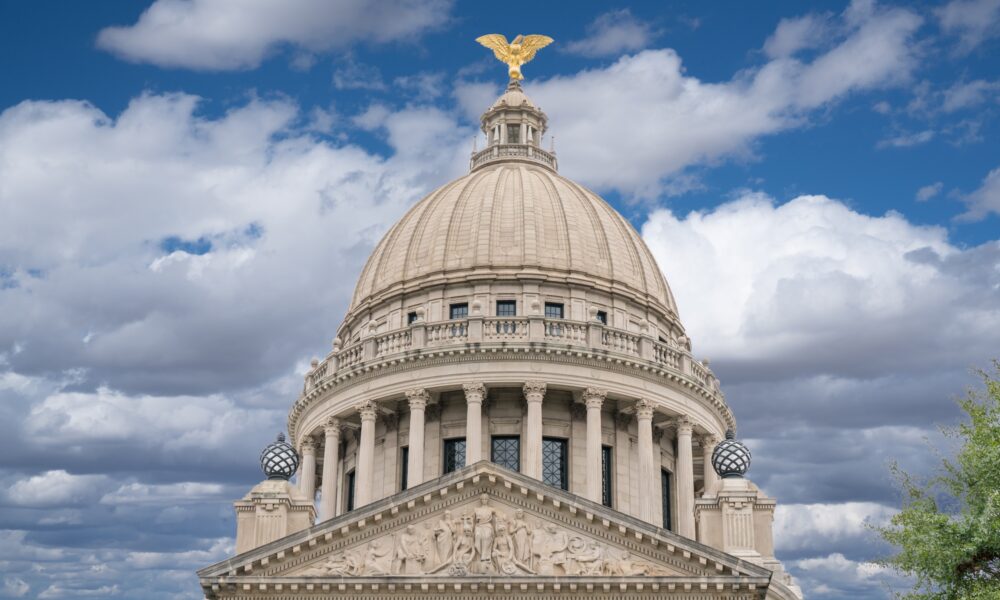Committee
Education; Appropriations A
Author
Rob Robertson
Session
2024 Session
Latest Action
The House failed to vote on HB 1449 prior to the March 14 deadline, causing this bill to die on the calendar.
Explanation of the Bill
A
s amended in committee, House Bill 1449 would establish a study committee to “determine the feasibility of establishing and administering a universal educational scholarship accounts (ESA) program for students in kindergarten through Grade 12” to provide funding for students attending private school and homeschool. HB 1449 no longer includes the original language that would have established a universal ESA program starting in 2025-2026.
The study committee would be comprised of seven political appointees:
- Two members appointed by the Speaker of the House (one of these members being the House Education Committee Chairman)
- Two members appointed by the Lieutenant Governor (one of these members being the Senate Education Committee Chairman)
- Three members appointed by the Governor (one superintendent of a public school district, one representative of a private school, and one representative of the business community)
The study committee would be tasked with reporting the following to the legislature during the 2025 regular session:
- The “viability” of a universal ESA program
- The costs of implementing a universal ESA program
- The impact of a universal ESA program on funding for public schools
- Any “potential constitutional or legal implications” of a universal ESA
The viability, cost, impact, and legal implications of a universal ESA are all critical aspects to be considered in determining the feasibility of such a program. As initially introduced, HB 1449 would have established a universal ESA program (called the Magnolia Scholarship Account program) that would have provided the equivalent of state per-pupil funding to all private school students by 2027-2028, in addition to a reduced award of $1,000 annually to all homeschool students. Because this program would have extended eligibility to the roughly 75,000 students currently utilizing non-public education options in Mississippi, we had estimated the program could have cost well over $200 million annually by 2029-2030.
ESAs, explained
ESAs are intended to direct public money to families utilizing non-public education options, such as private school. ESAs are similar to vouchers, though ESAs offer families more flexibility to spend these funds on expenses other than tuition. ESAs can also vary in scope: while Mississippi currently has a targeted ESA for students with special needs, the Magnolia Scholarship Account program originally included in HB 1449 would have been eventually open to all students utilizing non-public education options—regardless of disability status or income status. This is known as a “universal ESA.”
A number of states have implemented universal ESAs in recent years, most notably in Florida and Arizona. These programs are sometimes viewed as controversial for a number of reasons. Because a universal ESA allows students currently utilizing non-public education options to begin receiving state funding, a state with a universal ESA has effectively extended its responsibility from funding public education to funding private education as well. This can be expensive (for example, Arizona’s universal ESA program is expected to cost nearly a billion dollars in FY24 and lead to a general fund shortfall of $320 million), but it also raises questions about whether private schools should receive public money even if they are not held to the same standards—particularly in regards to admissions, state testing, and guarantees for students with disabilities.
The sole accountability provision for the Magnolia Scholarship Account program originally proposed under HB 1449 (this program is no longer included in the committee substitute) would have required recipients to annually take a “nationally recognized norm-referenced test” or a statewide assessment of their choice, though these results would have had no bearing on the student’s continued participation in the ESA program, or the status of the private school they attend. This level of accountability is in stark contrast to that of public school districts, which receive accountability grades of A-F based on student performance, and can lose autonomy and be taken over by the state if they receive an “F” rating for two consecutive years.
As introduced, HB 1449 would have allowed virtually any private school, including schools outside of Mississippi, to receive state funds from ESA recipients. Receiving these funds would not “limit the independence or autonomy of a participating school.” While participating private schools would have had to abide by federal law that prevents racial discrimination, there was no provision preventing discrimination on the basis of gender, sexual orientation, disability status, or religion. Participating schools would have been free to continue admitting (and dismissing) students based on their own criteria. There was also no provision in HB 1449, as introduced, that would have guaranteed students with disabilities a free and appropriate public education (FAPE) if they were to transfer from a public school to a private school under the ESA program. This means that participating private schools would have been under no obligation to offer special education services (which are guaranteed under federal law in the public education system) to students with disabilities.
| Date | Details |
|---|---|
| 2/19/24 | On February 19, HB 1449 was referred to the House Education Committee and the House Appropriations A Committee. |
| 2/29/24 | On February 29, the House Education Committee passed a committee substitute for HB 1449 that scrapped the original language that would have established a universal ESA program starting in 2025-2026. The committee substitute only includes language that would establish a study committee to “determine the feasibility of establishing and administering a universal educational scholarship accounts (ESA) program.” |
| 3/5/24 | On March 5, the House Appropriations Committee passed the committee substitute for HB 1449. |
| 3/14/25 | The House failed to vote on HB 1449 prior to the March 14 deadline, causing this bill to die on the calendar. |

